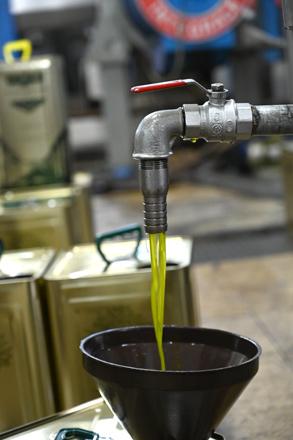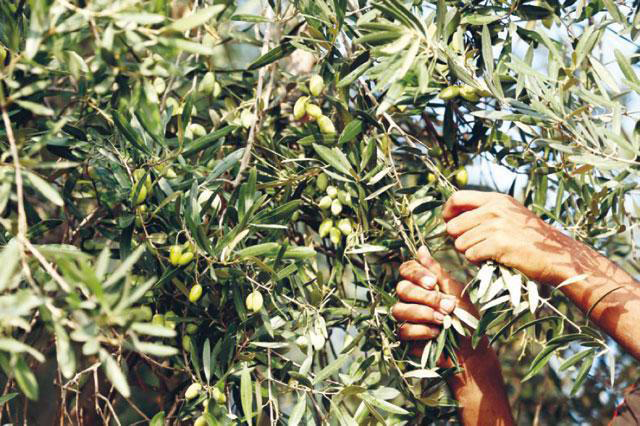You are here
‘Olive sector contributes JD100 million to GDP’
By Maram Kayed - Sep 30,2019 - Last updated at Sep 30,2019

The olive sector, including edible olives and extracted olive oil, is the ‘main source of livelihood’ for over 100,000 families in the Kingdom, according to the Jordanian Farmers Union (JT file photo)
AMMAN — The olive sector, including edible olives and extracted olive oil, contributes “at least JD100 million each year” to the national GDP, said spokesperson for the Jordanian Farmers Union Nedal Samaeen on Monday.
Aside from its average JD100-120 million contribution to GDP, the sector is also the “main source of livelihood” for over 100,000 families in the Kingdom, Samaeen told The Jordan Times over the phone.
This year, the union expects 25 to 27 million tonnes of olive oil to be produced all over Jordan, stressing that farmers should start picking the olives after October 25 for the best output.
Samaeen predicted that a tin of extra virgin oil will be sold at JD85 to JD95, while a standard tin of virgin oil, at 16 kilogrammes, will be sold at JD75 to JD85.
“We highly encourage citizens, as we do every year, to only buy oil from recognised and licensed places. This year, we have licensed 135 vendors, from farms to shops to olive oil pressing factories, so we hope that the number of complaints over adulterated oil will not be as much as past years,” he said.
The union will issue stickers to be printed on tins sold at recognised places, which serve as “a 100 per cent insurance and also a stamp of confidence” from the Jordan Food and Drug Administration, the spokesperson said.
“However, if citizens happen to buy adulterated oil from an unofficial seller, we encourage them to come to either the Ministry of Agriculture or the union to get it tested using new chemical tests that we have implemented, as well as report the seller,” said Samaeen.
Related Articles
AMMAN — Aside from social and personal benefits, enhancing women’s participation in the economy is key to a higher gross domestic product (G
AMMAN — A national anti-fraud campaign concerned with protecting the public against adulterated olive oil has been launched by multiple auth
AMMAN — As the olive season approaches, the National Agricultural Research Centre (NARC) and the Olive Oil Producers and Mill Owners Syndica

















